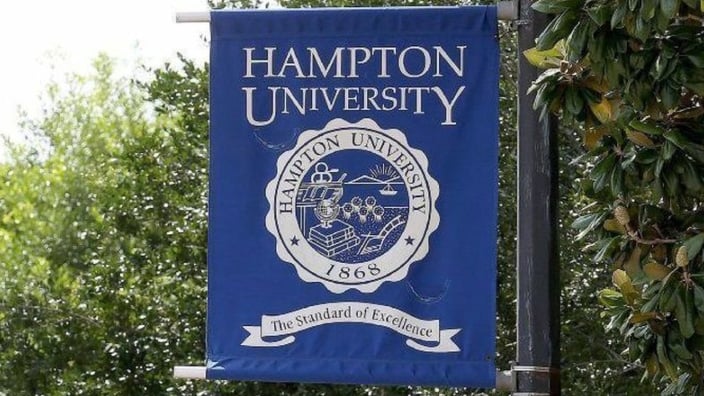Hampton University Homecoming: A Controversial Encounter with BLEXIT
As hundreds of alumni and students returned to their beloved Hampton University for homecoming festivities, a controversial presence stirred discussions on campus. The organization known as BLEXIT, co-founded by Candace Owens and aligned with Charlie Kirk’s Turning Point USA, attempted to infiltrate the vibrant atmosphere of HBCU homecoming celebrations. However, their unauthorized presence led to a swift response from campus security, who escorted them off the grounds.
The Incident Unfolds
The attempt by BLEXIT to join the festivities drew attention not only for its political implications but also for the protocols surrounding campus access. Reports suggest that their activities were met with resistance, prompting an official statement from Hampton University that aimed to clarify the situation. The university emphasized that the incident was not about suppression, but about adherence to safety procedures.
Hampton University’s Response
In their social media statement, Hampton University asserted the importance of established protocols regarding campus access and vendor participation. As a private institution, the university has structured processes in place to ensure the safety of all attendees during significant events, such as homecoming. According to the administration, BLEXIT failed to complete the necessary application processes, which was communicated to all potential organizations beforehand.
“Of the 36 applications submitted, 18 received approval; BLEXIT was not among them,” the university stated. They emphasized that safety concerns warranted knowing who was on campus and why, linking this to their commitment to maintaining a secure environment.
Public Safety Protocols
The administration’s focus on public safety was reiterated in their statement, highlighting that a well-coordinated approach ensures the protection of all participants. Administering approval for access allows the university to manage security effectively, ensuring that every visitor is accounted for in case of emergencies. With nearly 15,000 attendees expected during homecoming, Hampton University stressed the need for a controlled and safe atmosphere.
BLEXIT’s Perspective
Craig Long, a representative of BLEXIT, voiced his disappointment regarding the treatment the organization received. In a social media post, he claimed that their experience was emblematic of political bias, arguing that it was not merely about failing to adhere to paperwork but about an environment that stifled conservative voices. Long asserted, “This wasn’t about paperwork. It was about politics,” illustrating a broader sentiment many within his organization feel about representation at HBCUs.
Discussion of Diversity and Inclusion
The clash between BLEXIT and Hampton University sparked discussions about diversity and inclusion on college campuses. With BLEXIT promoting conservative values and seeking to engage in debate on historically Black college campuses, their exclusion raised questions about the extent to which different perspectives are welcomed. Long’s statement described their efforts as an initiative to challenge mainstream narratives, implying that they intended to foster critical dialogue among students.
Hampton University, for its part, maintained that it welcomes organizations representing various perspectives, as long as they adhere to established protocols. The focus on procedural adherence reflects the university’s commitment to facilitating a safe and orderly environment for all.
Commitment to Campus Community
Ultimately, Hampton University remains steadfast in its commitment to its students, staff, and alumni. By prioritizing safety and adherence to protocols, the administration aims to foster a community where every participant can engage freely and respectfully. The homecoming weekend is not only a celebration of school spirit but also an event that requires careful coordination to ensure it runs smoothly.
The incident involving BLEXIT serves as a glimpse into the ongoing dialogue around political diversity in academic settings, especially in institutions historically rooted in Black excellence. While BLEXIT’s plans were curtailed this time, the discussions surrounding their presence may continue to resonate as universities navigate the complexities of free speech, safety, and community values.



